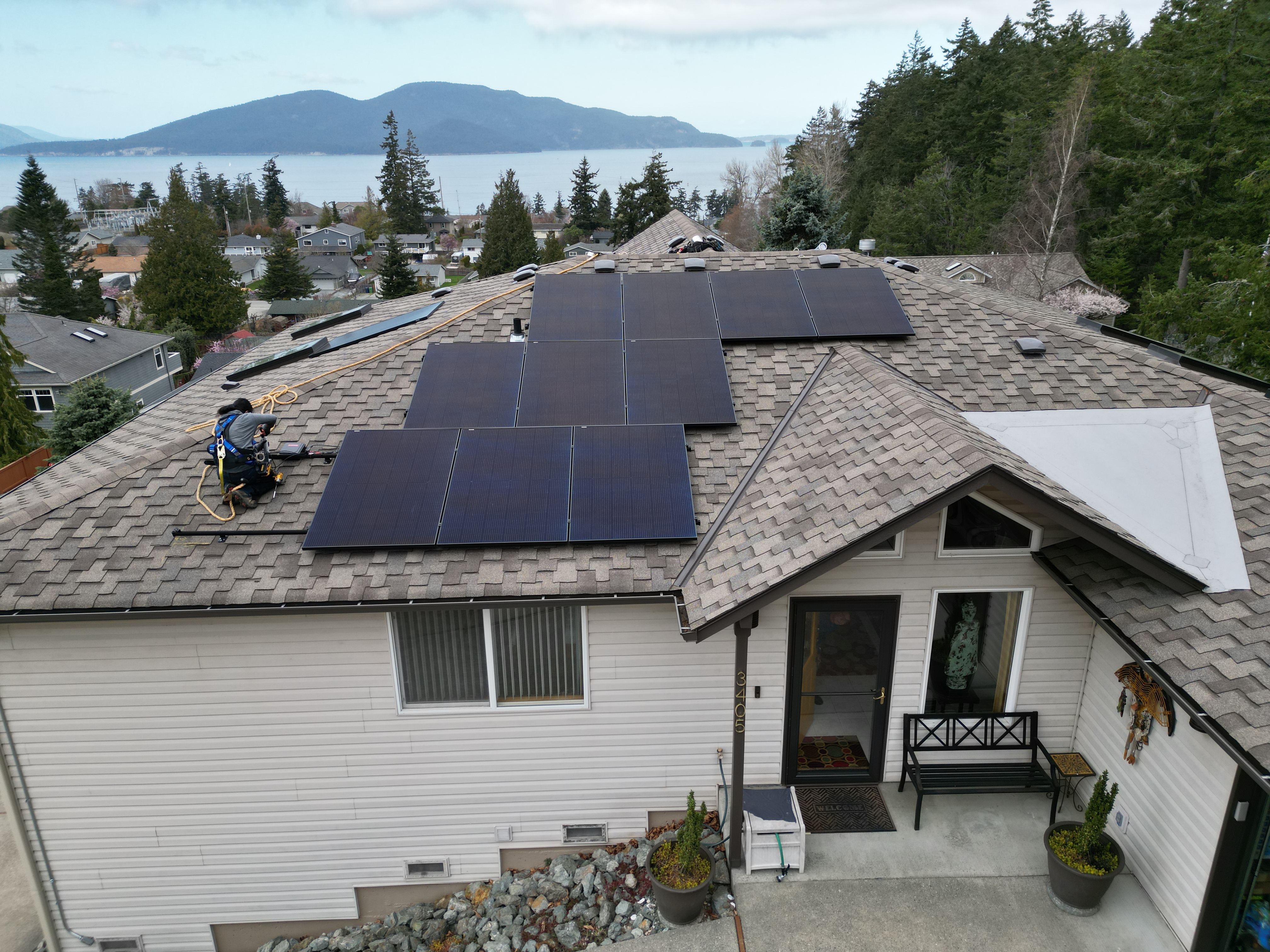
Is Solar Right for Your Home? Here’s What You Really Need to Know
You’ve seen solar panels going up on homes across the Pacific Northwest, and you’re probably wondering if it’s finally time to make the switch. With energy costs rising and utilities shifting their pricing structures, solar is a smart, long-term upgrade for homeowners who value performance, savings, and energy control. But before you call an installer, there are a few key factors to consider that will shape the success of your investment.
Here’s what you need to know to make the most informed decision.
Location Matters—But Not Like You Think
You don’t need to live in a desert to benefit from solar. Many homeowners assume that only places like California or Arizona are “solar-worthy,” but that’s outdated thinking. Solar panels work by collecting light—not heat—which means cool, cloudy regions like the Pacific Northwest are still ideal for solar production. Even places that see a lot of rain, like Seattle, can benefit. This has lead to an increase in Seattle solar companies who provide top notch solar panel installation.
Surprisingly, cooler climates like the Pacific Northwest are actually ideal for solar. Solar panels operate more efficiently at lower temperatures, and our long summer daylight hours more than make up for cloudy skies. Thanks to today’s high-efficiency panel technology, advanced inverters, and smart system design, homeowners in the PNW can generate impressive energy output—even without constant sunshine. While bifacial panels help maximize diffuse light, they’re just one of several innovations that make solar a smart, reliable investment in our region.
Permits, HOAs, and Utility Rules
Solar isn’t a plug-and-play appliance. It requires coordination with your local building department, utility company, and possibly your homeowners’ association. Some areas offer streamlined solar permitting, while others demand more documentation and review. Utility companies require net metering applications and safety checks before your system can go live.
Your installer should handle all of this for you—accurately, thoroughly, and with local experience. Otherwise, you risk delays or unexpected fees.
Your Roof is the Foundation
Your roof plays a crucial role in solar performance and cost. Before moving forward, it’s essential to assess your roof’s age, structure, material, and orientation. Asphalt shingle and standing seam metal roofs are the most compatible, while tile or shake roofs may require custom mounting hardware. South-facing exposure is best, but east and west-facing roofs can still deliver solid returns.
If your roof will need replacing within the next 5 to 10 years, it’s best to address it before installing solar. Otherwise, you could face the added cost of removing and reinstalling panels later on.
Done Right, Solar Pays You Back for Decades
A properly engineered solar system can offset most or all of your electric bill, increase your home’s value, and offer powerful protection against utility rate hikes. But rushed, poorly designed systems often underdeliver and create headaches. We take a custom approach to every home, ensuring performance that matches your lifestyle and long-term goals.
What to Ask Your Installer
As you research providers, make sure you’re getting more than just a sales pitch. Here are important questions to ask before you sign:
- Is my roof structurally ready for solar panels?
- Should I re-roof before installing panels?
- What will my system produce in my specific location?
- Which panel and inverter brands do you use, and why?
- Do you handle permitting and utility applications?
- Does this system qualify for all available tax credits and local incentives?
- What are the warranties for panels, inverters, and labor?
- Who provides service and support if something goes wrong?
- Can the system be expanded in the future if my needs change?
- How many systems have you installed in my area?
Solar power is one of the smartest home improvements you can make—but only when it’s tailored to your needs, engineered with care, and installed by professionals who understand the Pacific Northwest.